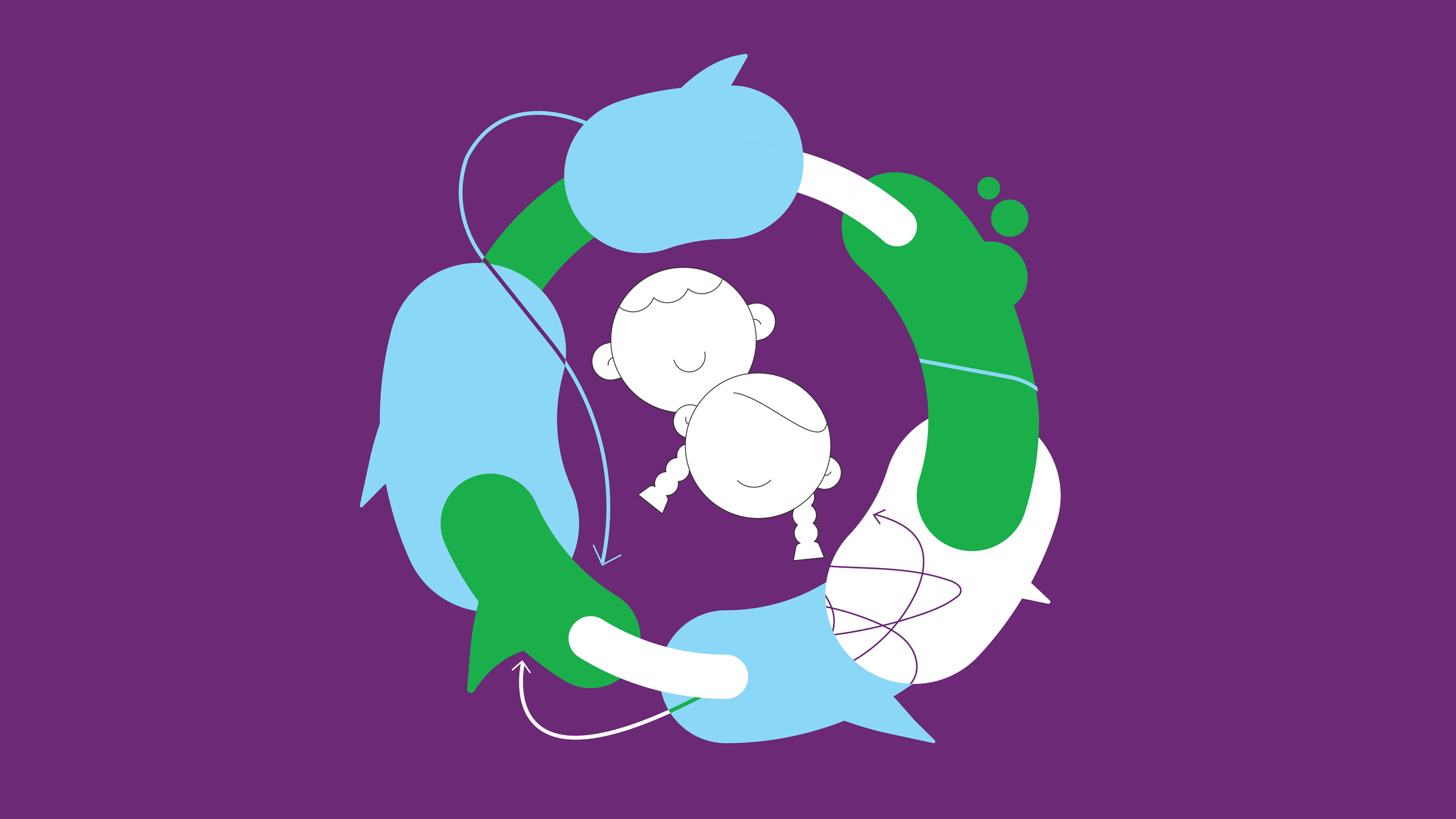The Society for Quality in Child Protection (IGQK), UNICEF Switzerland and Liechtenstein, the Swiss Foundation for the Protection of Children (Kinderschutz Schweiz) and YOUVITA today published a brochure on transdisciplinary quality standards in child protection for specialists, which was developed in cooperation with the Lucerne University of Applied Sciences and Arts (HSLU). This is the first compilation of uniform quality standards that is available to the fragmented child protection sector in Switzerland.
The idea to develop transdisciplinary quality standards was born at the first National Quality Dialog in 2018. This led to the formation of a working group on good practices under the direction of the IGQK and laid the foundation for the further elaboration of transdisciplinary quality standards. Following a public call for tenders, the project to develop the standards was awarded to the Lucerne University of Applied Sciences and Arts, which opted for a multi-level scientific approach that was actively accompanied by a broad-based support group. The exchange between science and the practice and the inclusion of the general public, politics and persons who themselves were confronted by the topic of child protection during their childhood played a decisive role in the development process.
This intensive and empirically supported subject dialog resulted in twenty transdisciplinary quality standards for specialists, which are structured around three topics. These in particular include:
Participation
- Preparation of age- and development-appropriate information about participation rights for children.
- Support for children in forming and expressing their own opinions.
- Support for their family members to encourage them to use the assessment and decision-making processes (incl. the option to file a complaint) to table the needs of the children.
Focus on child welfare
- Support in order to mobilize the resources of the child, their parents and family, reduce their burdens, and strengthen the child, the parents and the family.
- Timely support to protect the child when a threat to their welfare is identified, which takes account of the severity and duration of the threat and the achievement of support targets.
Professionalism and cooperation
- Acquisition of current, evidence-based specialist knowledge about child rights, forms of support and threat detection.
- Design of barrier-free, safe and age-appropriate rooms and materials.
- Implementation of clear coordination structures and well-defined areas of responsibility.
- Appointment of a person to serve as the child’s point of contact if several specialists are involved over a longer period of time.
The transdisciplinary quality standards address specialists and organizations involved in child protection from the volunteer, public sector, civil law and criminal law segments who work directly with children and their family members. The quality standards are there to evaluate and optimize the conduct of specialists. They also provide a platform where specialists can engage in an exchange about and in the further development of quality in child protection in their organizations and regional associations.
The fragmented child protection sector in Switzerland now for the first time has access to quality standards that are supported by different players. It serves as an important basis for launching the further elaboration of a common vision of child protection. The brochure will be publicly presented, discussed and made available in a printed version for the first time at the IGQK’s third National Quality Dialog on November 9 and 10, 2023.
